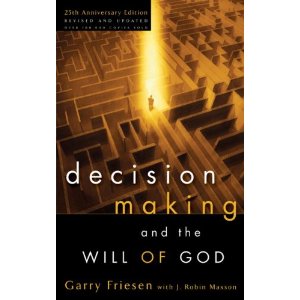Chances Are, You’re Married to the Wrong Person
September 11, 2010 7 Comments
Actually, it should be said, “Chances are 100% that you’re married to the wrong person” (assuming you are married).
You may not be surprised to hear that you’re married to the wrong person. You’ve believed this for a long time, so it resonates. But you are a little troubled, possibly even vexed, that I know this about you. And you’re aghast at the very suggestion that it was bound to be so, that, whoever you are, you married the wrong person.
If this sounds wildly implausible to you, then I recommend reading a post by Lori Lowe, titled “We All Married the Wrong Person”—at her Marriage Gems blog.
In her post, Lori recounts the high points in her interview with Dr. Scott Haltzman, a psychiatrist whose books focus on marriage and family dynamics. Haltzman explains why we should acknowledge that we’ve married the wrong person. For that, we should consider the evidence that it’s true.
- We never know a person completely when we step into marriage with him or her.
- Marriage frequently begins with star-crossed lovers, blind to each other’s faults or limitations.
- We bring unrealistic expectations into our marriages, expectations that cannot be fulfilled by anyone.
- We all change with time and circumstance, so that we find we’re married to a different person over time.
- The frequency of divorce is alarmingly high.
- Couples that remain married acknowledge that they are not always completely happy in their marriages.
- The pool of marriage candidates may be so large that the odds of choosing the right person are low to begin with.
Lori’s excellent post surfaces many valuable points. There are others to consider.
First, the whole concept of a right person to marry needs to be examined. Even if we allow that more than one person could be right for us, we should wonder:
- What does it mean for a person to be right for me?
- How would I know that a certain person is right for me?
- How would I know later that the person I married is not right for me after all?
- And what if every “right person” marries the wrong person—that is, marries someone other than me?
Second, suppose there is no “right person” for anyone to marry, at least in the sense that so many hope for. Anyone you marry will, sooner or later, disappoint. But this does not mean:
- You should never marry.
- Your marriage to the wrong person cannot succeed.
And it definitely does not mean that:
- Any person you marry is good enough.
- There is no person who is wrong for you.
Third, some readers will argue from a religious point of view that for those people who should marry, there is always the right person. This, they may say, is tied to the sovereignty of God and God’s special means of guidance for individual believers.
Even if this is true, the questions raised here are still vital. They translate into questions about what God desires for us, how we know what God desires for us, and how we know when we’ve found what God desires for us.
Fourth, we should commit to having a successful marriage, and let go any idealistic notion of being married to just the right person and having a perfect marriage.
Fifth, we should welcome a different conception of the values and rewards of marriage than what is so widely assumed today.
Scott Haltzman’s books:
- The Secret’s of Happily Married Men
- The Secrets of Happily Married Women
- The Secrets of Happy Families
A book I recommend on decision making for the Christian, and its wisdom approach to marriage decisions, is Decision Making and the Will of God, by Garry Friesen.





Recent Comments